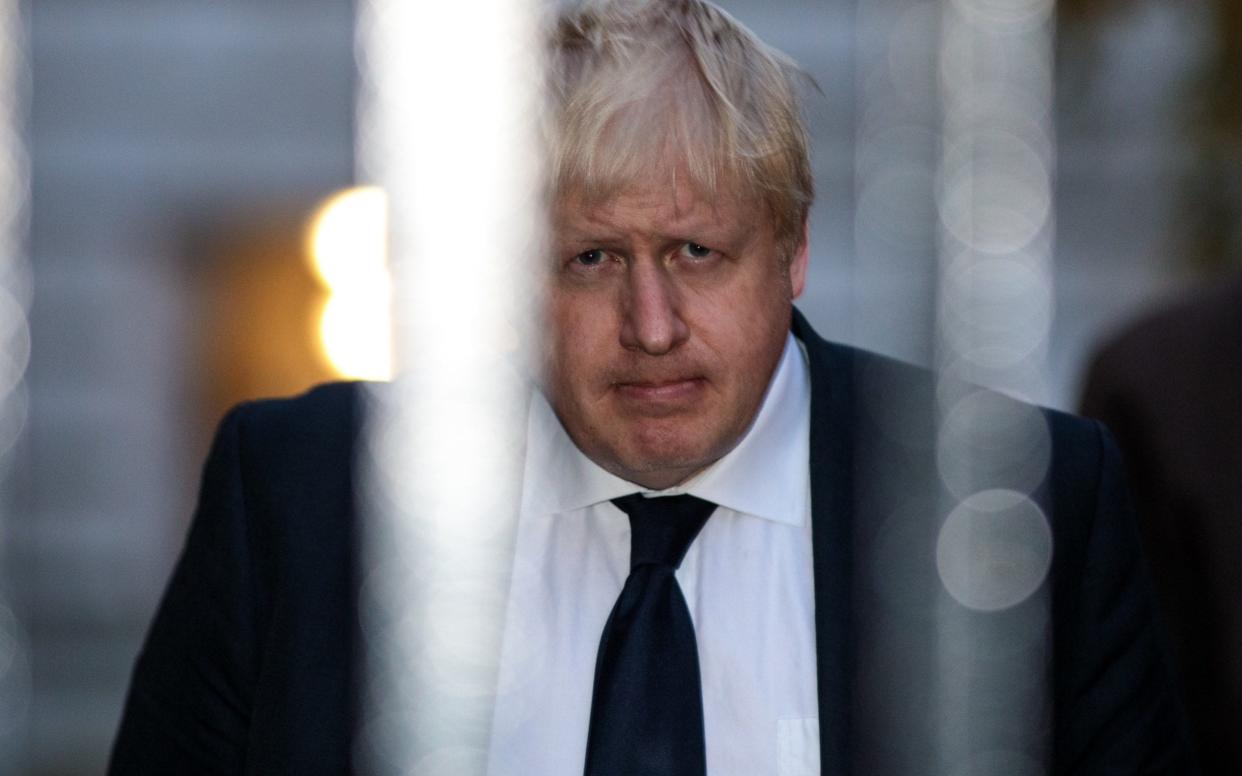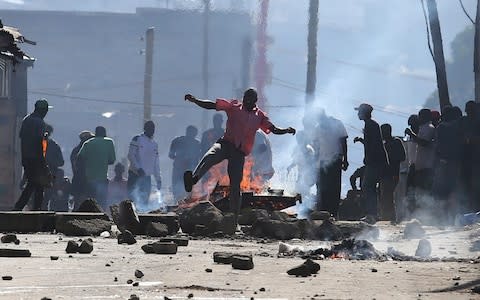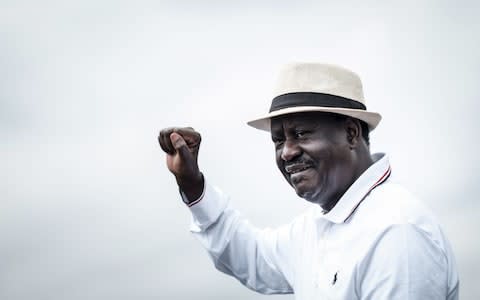Boris Johnson accused of 'fanning flames' of Kenya crisis with offer of congratulations

Boris Johnson was thrust into a political storm in Kenya on Tuesday after he appeared to become the first senior foreign official to endorse President Uhuru Kenyatta’s controversial re-election.
The Foreign Secretary handed the Kenyan government a diplomatic coup after he broke ranks with his western counterparts by offering Mr Kenyatta his congratulations in a telephone call on Monday, according to officials in Nairobi.
Mr Johnson’s gesture left Britain isolated, with other Western missions in Nairobi saying they had chosen to delay offering their congratulations in stands against aspects of Mr Kenyatta’s campaign and the deadly suppression of protests in recent months.
The killing of ten protesters last Friday after police banned a rally by Mr Kenyatta’s defeated rival, Raila Odinga, caused particular anger, it is understood.
Apart from Britain, the only other countries known to have congratulated Mr Kenyatta are South Sudan, Uganda and Bangladesh.

Mr Johnson’s conversation with Amina Mohammed, the Kenyan foreign minister, took place hours after the country’s supreme court upheld Mr Kenyatta’s victory in a rerun election held last month.
The same judges overturned the president’s first win in August, citing “irregularities and illegalities” in the transmission of votes.
According to Mrs Mohammed, Mr Johnson welcomed the vote and pledged to deepen ties with the government.
The Foreign Office did not deny Kenya’s version of events
“We welcome Kenya’s supreme court decision upholding Kenya’s 26 October presidential elections,” a spokeswoman said. “We look forward to working with the new Kenyan government.”
Mr Odinga’s opposition coalition condemned the Foreign Secretary’s intervention, accusing Mr Johnson of placing “British interests” above “British values” by propping up “an illegitimate regime”.

“Such an endorsement only serves to fan the flames of dissatisfaction in the country,” said Noah Akala, the opposition alliance’s head of communications.
“We feel that such a congratulatory message in light of everything that has happened does not help in achieving or reinforcing democracy on the continent.”
Mr Odinga boycotted the second election, arguing that it would be no fairer than the first, and has accused the government of intimidating the judges, whom the president dismissed as “crooks in the pay of whites” after his initial victory was overturned.
Scores of people have been killed in election-related violence over the past three months, many at the hands of the police.
Britain and the United States have taken the lead in trying to mediate a solution to the crisis. There are fears that Mr Johnson’s apparent endorsement could undermine the reputation of Nic Hailey, the British High Commissioner to Nairobi, as an honest broker.
It is unclear whether the Foreign Secretary consulted Mr Hailey before his telephone conversation. The High Commission made no comment.
Mr Johnson may have been inveigled into offering Britain’s endorsement. Under standard diplomatic protocol, presidential election winners normally await messages of congratulation from abroad.
But in a sign of the Kenyan government’s desperation for international legitimacy, the country’s foreign ministry, in an unusual move, actively solicited congratulations.
Johnson Weru, Kenya’s ambassador to Brussels, emailed Western officials asking them to prepare and dispatch “a suitable congratulations message,” the Financial Times reported, citing two sources.
Except in the case of Britain, the approaches appear to have been rebuffed — but the fact that they were made prompted speculation that Ms Mohammed solicited Mr Johnson’s congratulations. The Foreign Office was unable to confirm who initiated the telephone call.

 Yahoo News
Yahoo News 
